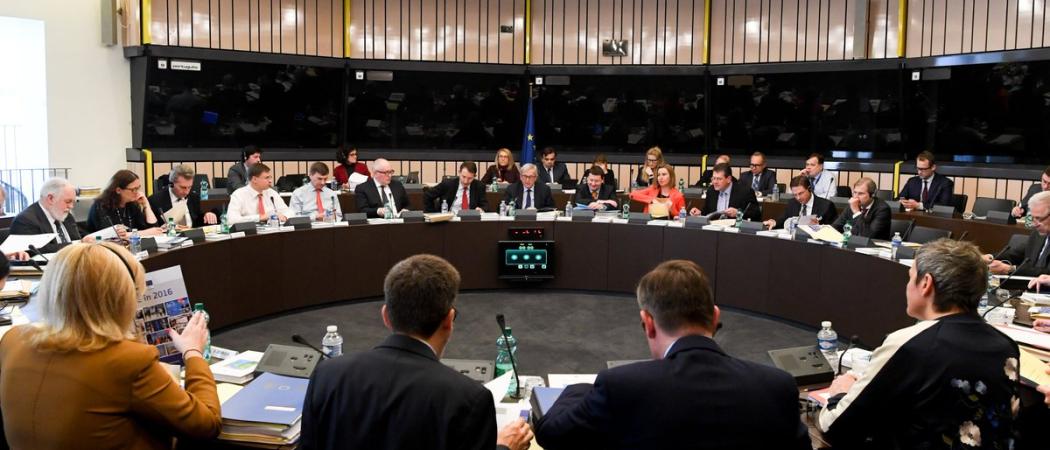EU executive united on need to protect R&D and will look to increase research spending - despite loss of UK’s €12B net contribution and plan to invest €10B in new activities

The 28 EU Commissioners have unanimously agreed to spare both research and the Erasmus student exchange programme from spending cuts in the 2020s, and will explore ways to increase the R&D budget, EU budget chief Günther Oettinger said on Wednesday.
“We all concur on [the need to] avoid cuts to Erasmus+ and Horizon 2020,” the German commissioner said, adding, “And we may even increase spending for research.”
Oettinger has campaigned in recent months for research spending to be ring fenced in the 2021 - 2027 budget. Following a meeting of all commissioners that is now the official Commission position.
In the face the loss of the UK’s €12 billion per annum contribution to EU coffers after Brexit, Oettinger proposes to fill the gap with a mixture of cuts and additional contributions from EU members that are net contributors, and from new sources.
All other EU programmes will be cut and some Brussels-funded schemes will have to merge, Oettinger said. One such merger proposal, presented by Commission vice president Jyrki Katainen to colleagues during the cabinet meeting, is to create a single European fund, which would provide an overarching structure for the various EU investment schemes.
The common agricultural policy and cohesion funding for poorer countries, two programmes that between them absorb around 70 per cent of EU cash, “Will have to tolerate cuts,” Oettinger said. “I want to make these [cuts] as moderate as possible. Not 15 or 30 per cent, but [certainly] below their current amount.”
The Commission wants to find “up to €10 billion a year” additional cash after Brexit to cover the cost of new tasks including controlling migration, defence research and new climate change programmes. Combined with the loss of UK payments, this would leave the EU facing a funding gap of around €22 billion a year after 2020.
Making good this shortfall will require countries to pay more into the joint budget. The Commission made a plea on Monday for the remaining 27 members to increase their contributions from 1 per cent of total EU gross national income to a little over 1.1 per cent.
Member states such as France and Austria, which are net payers, have objected to putting in more. “We cannot ignore the departure of a major economy; it will be difficult in Austria to pay higher contributions,” the country’s federal minister for the EU, arts, culture and media, Gernot Blumel, said on Monday. “Smaller EU implies a smaller budget.”
We “take this statement very seriously”, Oettinger said, before pointing out that a final unanimous decision on the budget “means everyone will have to move a bit.”
The Commission is due to present its full proposal for the 2021 – 2028 multiannual financial framework in May.
In addition to upping the contribution from the EU27, new revenue could come via a tax on imported plastics, or by diverting the income from the EU’s emissions trading scheme from member states and channelling it directly to Brussels.
Oettinger pointedly left the door open for the UK to keep paying into EU coffers, citing the EU’s arrangement with Switzerland and Norway, which contribute in exchange for access to EU programmes.
“Switzerland contributes to [the] EU budget and research – this is something that the British could reflect upon,” he said. “Certainly, we do not want to exclude anyone.”





 A unique international forum for public research organisations and companies to connect their external engagement with strategic interests around their R&D system.
A unique international forum for public research organisations and companies to connect their external engagement with strategic interests around their R&D system.